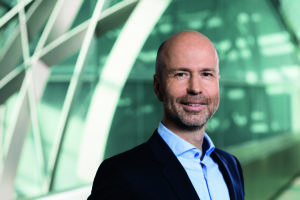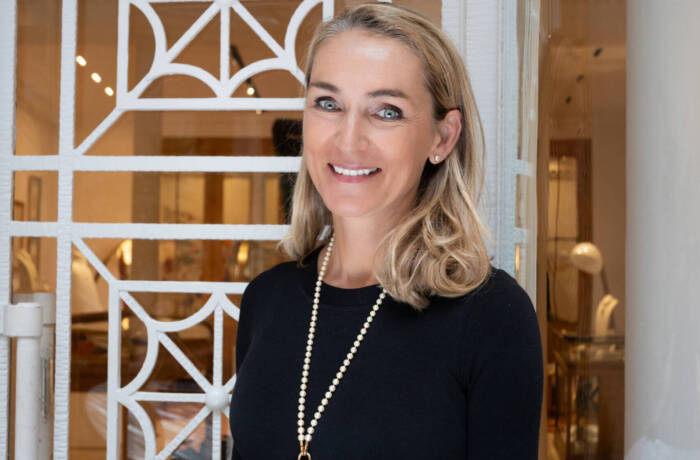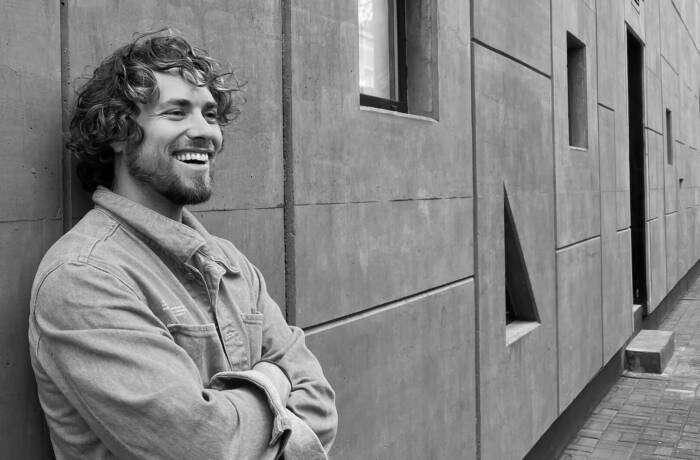
Drone footage of Atlantic Forest in Brazil. Image by FG Trade
Can the power of the financial markets be harnessed to address environmental issues such as ocean conservation? LUX talks to Jörg Eigendorf, Head of Corporate Communications, Social Responsibility and Sustainability at Deutsche Bank, about the unique role banks can play to incentivise sustainable investment and consumption

Jörg Eigendorf. Image by Mario Andreya / Deutsche Bank AG
LUX: Sustainability can be an empty word in business. How can you make it meaningful?
Jörg Eigendorf: Put simply, as a company we need to demonstrate that we are willing to integrate it in all parts of our value chain. This starts with our own operations. At Deutsche Bank we made a pledge in 2007 to become carbon-neutral and achieved that goal in 2012, but we have worked continually since then to cut our energy consumption – as well as our usage of water, paper and other resources – and this year we challenged ourselves to get all the electricity we use from renewable sources by 2025. But this is only the minor part: banks also have an additional responsibility, in that we facilitate other forms of business, which can themselves have a positive or negative impact on the world. This is where environmental, social and governance (ESG) principles and practices come into play.
Follow LUX on Instagram: luxthemagazine
LUX: ESG investing is in fashion right now. What makes it more than financial jargon?
Jörg Eigendorf: It is already much more than a new piece of financial jargon. It’s a concept that has gone from niche to mainstream in recent years. Investors increasingly want to ensure their money is used to support businesses that care about sustainability. ESG gives them a way to compare and contrast investments based on factors that go beyond financial performance – without sacrificing it. So it really has the potential to transform the whole economic system in a positive way. This is why we feel confident that we will be able to increase our volume of sustainable financing plus our portfolio of ESG investments under management to over €200bn by 2025 – to play our part in contributing to this momentum.
LUX: Can ESG really incentivise better behaviour in the private sector?
Jörg Eigendorf: I’ll give you a practical example: in Singapore, we’ve just provided a $25m ‘sustainability-linked’ loan facility to an agricultural company. If the company meets a set of agreed sustainability targets over the three-year term of the loan (and if these are verified by an external auditor), the interest rate payable on the loan will be lower; otherwise it will be higher. This kind of innovation sets a great example and shows how we can help companies incentivise themselves to do better. Of course, progress is often relative, and in some industries all we can do is try to make things better than they were before, consistently. We can’t stop fossil-fuel usage overnight because we don’t have the means to compensate for this yet. But we need to drive and facilitate change. In the almost five years I’ve been with Deutsche Bank, I’ve realised how important banks are to this transformation process, and that we have a big lever with which to make a real difference.
Read more: Marine biologist Douglas McCauley on environmental philanthropy
LUX: What are the main challenges involved in building sustainability into financial products and services?
Jörg Eigendorf: The biggest is probably asset origination – that is, the process of identifying and acquiring investments that offer ESG benefits alongside traditional benefits such as capital growth. It starts with the question: what is sustainable? This is why we have just published our sustainable finance framework which is closely aligned with the new EU taxonomy on financial services. We need this transparency to give our businesses, as well as investors, some certainty in times when demand for ESG products from both private individuals and institutions is outstripping supply. Having said this, it is still difficult to verify that a particular asset meets particular ESG criteria. There is not enough data, there is not enough clarity and there is not enough consistency in the way that ESG criteria are defined and compared. That’s why we’re helping to develop industry-wide ESG standards – for example, working within various initiatives to develop a framework for comparing and contrasting ESG products.
LUX: What ESG issues do you feel passionate about personally?
Jörg Eigendorf: I feel very strongly about the overconsumption of natural resources, and especially how we treat animals. We are eating up this planet and we should stop it. Every German consumes around 61kg of meat a year on average, and the suffering associated with this is unbelievable. Pigs have much DNA in common with humans. They feel emotions just as we do. So from my point of view it cannot be right that we treat them as a commodity. Meat production is also making a significant contribution to climate change – for example, as rainforests in Latin America are razed to produce grazing land for beef cattle. I also care a lot about ocean conservation, marine ecosystems are vital for the world and the climate, so we cannot risk their collapse. These are matters of life and death for humanity as a whole.
LUX: What’s the future for ESG?
Jörg Eigendorf: It is already mainstream and will become more important every day. The Covid-19 crisis, while terrible in many ways, has also made us aware of how things need to be different. We’ve suddenly become more aware of our environment. We’ve realised that we don’t have to be on the run all day long, travelling left and right, and that in many cases a video conference is enough. I am convinced that this crisis will lead to a change in behaviour and creative solutions. And I think we will be less likely to go back to the old, more inefficient world as a result. At the same time, greater awareness of ESG investing will lead to a virtuous circle in which economic growth is coupled with environmental protection – provided we in the financial sector play our part in leading the development of ESG standards and solutions. We welcome the idea of our clients and investors pushing us to do better: there must be a mutual understanding to drive change.
Find out more: deutschewealth.com/esg
This article originally appeared in the LUX x Deutsche Bank Wealth Management Blue Economy Special in the Autumn/Winter 2020/2021 Issue.








